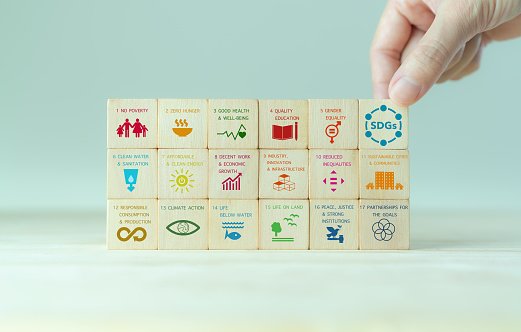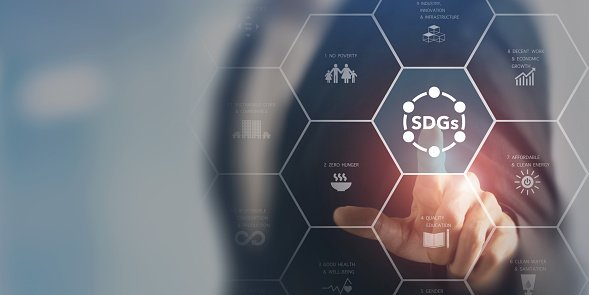Two billion women without access to social protection

Ⓒ WFP/Arete/Siegfried Modola | A group of mothers in Uganda discuss the benefits of the UN agency-supported Nutricash project which helps improve nutrition for families in need
New research from UN Women shows that two billion women and girls around the world do not have access to any kind of social security, highlighting a glaring gender imbalance in this area. This inequality is especially noticeable in developing nations, where men have disproportionately benefited from recent advancements. Particularly when they are pregnant, poverty disproportionately affects women and girls. This inequality is made worse by conflict, climate change, and growing inflation. Even though the need for social protection is increasing, women’s economic security is only partially addressed by government initiatives. With more than 63% of women worldwide without access to maternity benefits, maternity protection is especially concerning. In addition to impairing women’s financial security, this lack of support also jeopardizes their health and that of their offspring. Despite the dismal circumstances, there are encouraging instances of development, such as Senegal’s expansion of health insurance services for rural women and Mongolia’s provision of maternity leave benefits to informal workers. UN Women highlights how social protection may support transformation, resilience, and gender equality. Women and girls must be at the forefront of every step of the process, from designing policies to delivering and funding them, in order to fully realise this promise.
1 in 7 children and teens impacted by mental health conditions

© UNICEF/Antti Helin | Around one in seven children and adolescents aged 10-19 are affected by mental health conditions says a new UN report
A report outlining the concerning mental health epidemic affecting children and adolescents was produced by UNICEF and the World Health Organisation (WHO). Among youths aged 10 to 19, mental health illnesses affect one in seven of them; the most common are anxiety, depression, and behavioral disorders. Since half of mental health disorders manifest before the age of 18, the report highlights the significance of early intervention. Access to mental health care is still quite difficult to come by, though, especially in low- and middle-income nations. Many young people are discouraged from getting treatment because of systemic obstacles like lack of services, stigma, and cost. Through the integration of social safety, education, and health systems, the report promotes a community-based approach to mental health care. Building an extensive network of services for youth is the goal of this strategy. The research also urges the phase-out of institutional care for children with mental health issues, claiming that it results in poor outcomes and violates their human rights. Countries can significantly enhance the lives of millions of young people by putting mental health as a component of overall child and adolescent well-being at the forefront.
Nearly half the world’s 1.1 billion poor live in conflict settings

© UNOCHA/Giles Clarke | A family displaced by gang violence in Port-au-Prince, Haiti, lives in a tent on the roof of a former government building
The UN Development Programme (UNDP) and the Oxford Poverty and Human Development Initiative (OPHI) recently released the Multidimensional Poverty Index (MPI) report, which paints a vivid picture of poverty around the world. Acute poverty affects more than 1.1 billion people, and 455 million of them reside in nations impacted by violence. The conflict has made poverty much worse, especially when it comes to access to essential services like clean water, electricity, education, and wholesome food. A disproportionate number of children—nearly 28% of them worldwide—live in poverty. Afghanistan is cited as an example, as the country’s poverty rate has increased recently. To tackle this issue, the research recommends more assistance and targeted actions to end the poverty-crisis cycle. It is important to eradicate institutional and societal discrimination against the poor, as highlighted by the International Day for the Eradication of Poverty. According to UN Secretary-General António Guterres, poverty is a product of society’s decisions rather than an inescapable state. In order to bring people out of poverty, he advised governments to give social safety, good work, and education major funding priorities. The United Nations Member States have ratified the Pact for the Future, which offers a framework for tackling global issues such as sustainable development and the eradication of poverty.
$1.5 billion commitment for education and skills training in lower-middle-income countries

© UNIC Pakistan | Today, globally, some 250 million children are out of school
To solve the worldwide education problem, the International Finance Facility for Education (IFFEd) has committed $1.5 billion. The 800 million young people who lack the skills required for the modern workforce and the 250 million youngsters who are not in school will benefit from this assistance. Lower-middle-income nations (LMICs), who frequently have difficulty obtaining sufficient funding for education, are the focus of IFFEd. IFFEd seeks to optimize the impact of donor funding by utilizing a combination of grants and state guarantees. At the national level, $7 in funding for education and skills can be provided for every $1 in donor funds. The original funders of IFFEd were Canada, Sweden, and the United Kingdom; additional funding comes from a number of international philanthropic foundations. The Asian Development Bank, the first MDB partner, will collaborate with IFFEd to provide funds to ten Asia-Pacific nations. The creative funding model of IFFEd has the power to change the lives of millions of kids and teens worldwide.
References
https://news.un.org/en/story/2024/10/1155701
https://news.un.org/en/story/2024/10/1155536



